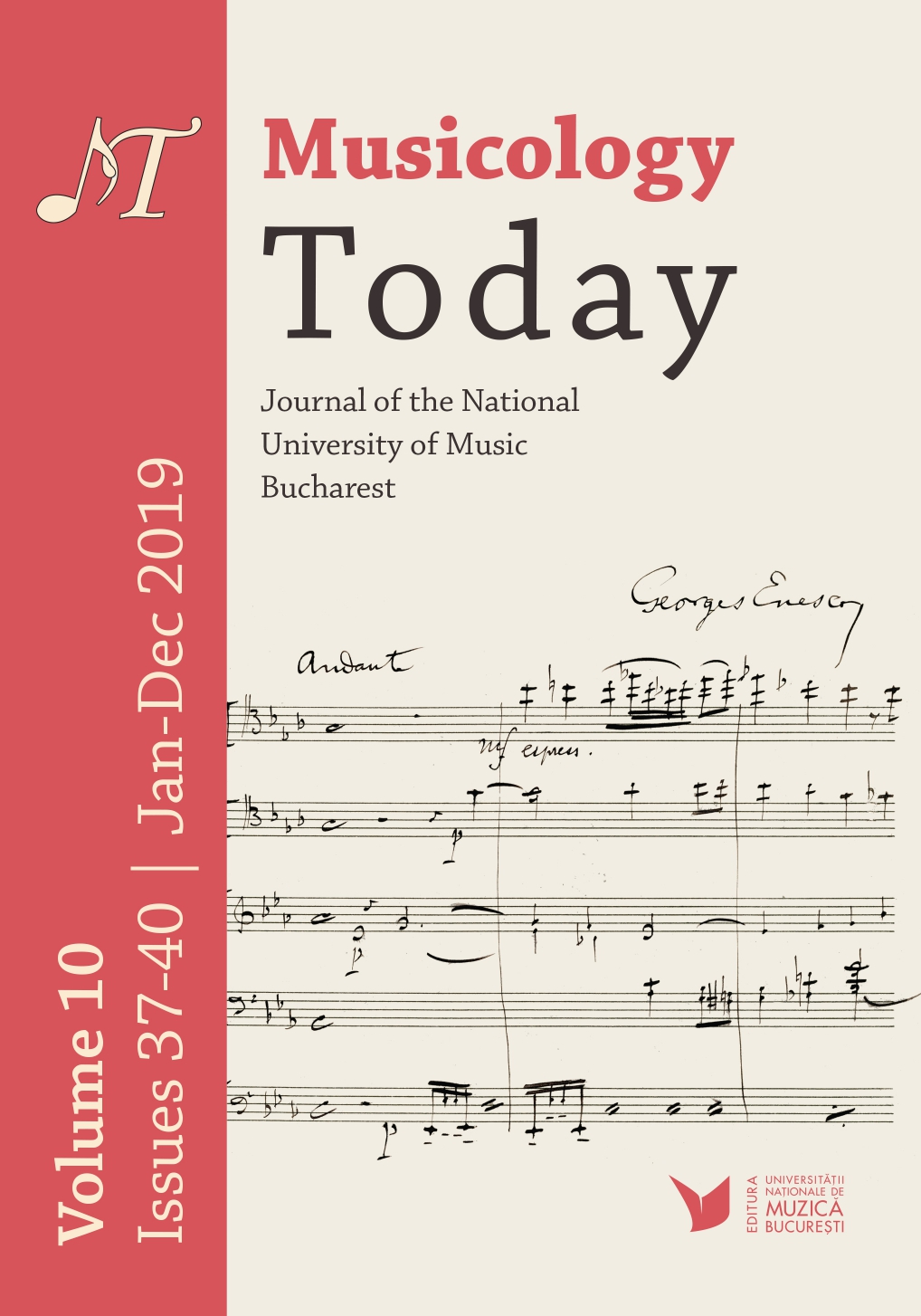Politico-ideological Distortions of Writing About Music in Romania. Case Study: Local Perception of Sergey Prokofiev
Politico-ideological Distortions of Writing About Music in Romania. Case Study: Local Perception of Sergey Prokofiev
Author(s): Florinela PopaContributor(s): Maria Monica Bojin (Translator)
Subject(s): Music
Published by: Editura Universității Naționale de Muzică din București
Keywords: politico-ideological reception; totalitarian regimes; Stalinist-Zhdanovist norms; Socialist Realism;
Summary/Abstract: This paper follows the twists and turns of the way that Prokofiev’s music was perceived in Romania during the 20th century as influenced by the various political regimes and their respective position towards Moscow. We can distinguish between several stages, the paper being mainly concerned with the first three: 1) The interwar period, when a West-oriented Romania had chilly relationships with Moscow; 2) Romania's sovietisation after the World War II (1945 – c. 1960); 3) Romania's relatively relaxed political state at the end of the 1960s and the distancing from Moscow after 1965; 4) The aggressive nationalism instituted by Ceaușescu after 1971; 5) The post-1990, anti-Communist (at least at a declarative level) period. After the cultural isolation of the 1970s and 1980s and its emphasis on Romanian music, a renewed, albeit moderate, interest in Prokofiev would be shown by Romanian musicologists in 1991, the year marking the composer's 100th birth anniversary. Without involving detailed musical analyses or in-depth musicological comments, the texts discussed in this paper are written by music critics (from Miron Grindea to Alfred Hoffman), composers (Zeno Vancea, Sergiu Sarchizov), or historiographers (Ovidiu Varga, Octavian Lazăr Cosma).
Journal: Musicology Today: Journal of the National University of Music Bucharest
- Issue Year: 10/2019
- Issue No: 37
- Page Range: 37-51
- Page Count: 16
- Language: English

